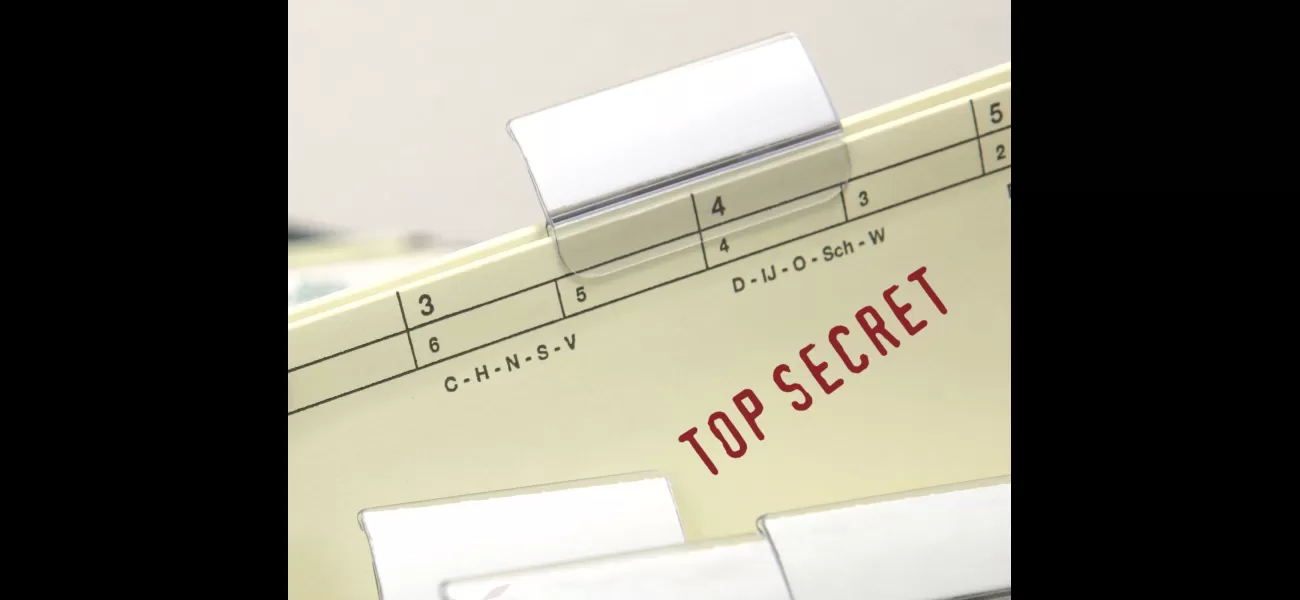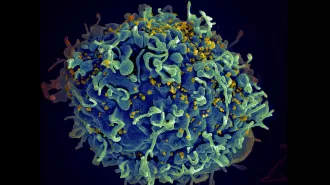The close family member of a dictator was not granted high-level clearance in the US.
Possible paraphrase: The woman may be related to North Korean leader Kim Jong Un as his cousin.
May 1st 2024.

This year, a woman who remains unnamed was denied top-secret security clearance in the United States. According to a publicly available document from the Defence Department's Office of Hearings and Appeals, the reason for her denial was that she is a "close" relative of an authoritarian dictator from an unspecified country. The administrative judge in charge of her case made the decision to deny her clearance, which is quite rare and suggests that this situation was out of the ordinary. The judge stated that the woman is related to "an extremely bad and dangerous person, a dictator of a country that is hostile to the United States."
As of October 2017, CNN reported that there were over 1.2 million people who held top-secret security clearance. The woman in question is in her thirties and married to an American citizen who was born in the US. She has been working for defense contractors for several years, according to the document. The woman and her family moved to the United States in the 1990s when she was young and they all became US citizens. However, the document notes that they are no longer in contact with any family members who still live in the country referred to as "Country X."
The judge's decision was based on the fact that Country X is known to support international terrorism and engage in cyberattacks and espionage against the United States. The document states that the woman was born a citizen of Country X and that one of her close family members is the country's dictator. Her parents and siblings also immigrated to the US in the 1990s and became citizens.
Upon moving to the US, the woman and her family changed their names. However, the woman told the court that her mother still fears retaliation from their home country. Despite this, the woman in question already holds a secret security clearance and there have been no concerns raised about her handling of sensitive information.
The administrative judge, Edward Loughran, described the woman as "intelligent, honest, and loyal to the United States." He noted that she is a model employee with no history of security issues. The judge also mentioned that the woman testified that her connections to Country X and its dictator could not be used to coerce or intimidate her into revealing classified information. Loughran stated that the only issue with her eligibility for a security clearance is her family's connection to a dictator.
Decisions on security clearance eligibility are regularly made public by the Defence Office of Hearings and Appeals. Military sociologist Dr. Marek Posard from the RAND Corporation commented that the information in the documents suggests that the woman may be from North Korea. He pointed out that the document mentions a dictator and state-sponsored terrorism, which aligns with North Korea's actions. In 2016, The Washington Post reported that the aunt of North Korean dictator Kim Jong Un and her three children immigrated to the US in 1998.
The judge who made the final decision noted in the document that Country X considers people who leave the country to be traitors and has taken retaliatory actions against some of them. The woman's application for clearance was submitted in October 2023 and the case was closed in January. The documents do not provide specific details about the woman and her family in order to protect her identity.
Posard stated that the judge was careful not to criticize the woman in the document. In fact, Loughran repeatedly emphasized that there is no reason to question her loyalty to the United States. He noted that she expressed her undivided loyalty and allegiance to the country. The judge also mentioned that he has a very favorable view of the woman as a person.
According to Posard, it is not surprising that the woman had previously been granted a secret security clearance as circumstances may have changed since then, including the geopolitical situation. He explained that having a secret clearance does not give someone access to highly classified information, and there may be concerns about the potential risk that could come from their social network.
As of October 2017, there were over 2.8 million people with security clearances in the US. Loughran ultimately declined the woman's request for a top-secret clearance due to the potential conflict of interest and the risk of foreign exploitation, manipulation, or coercion. Posard noted that this decision likely has nothing to do with the woman personally, but rather the level of risk that the US is willing to accept by granting her a clearance. He added that sometimes, it's not about the individual, but the potential risk that could come from their network.
As of October 2017, CNN reported that there were over 1.2 million people who held top-secret security clearance. The woman in question is in her thirties and married to an American citizen who was born in the US. She has been working for defense contractors for several years, according to the document. The woman and her family moved to the United States in the 1990s when she was young and they all became US citizens. However, the document notes that they are no longer in contact with any family members who still live in the country referred to as "Country X."
The judge's decision was based on the fact that Country X is known to support international terrorism and engage in cyberattacks and espionage against the United States. The document states that the woman was born a citizen of Country X and that one of her close family members is the country's dictator. Her parents and siblings also immigrated to the US in the 1990s and became citizens.
Upon moving to the US, the woman and her family changed their names. However, the woman told the court that her mother still fears retaliation from their home country. Despite this, the woman in question already holds a secret security clearance and there have been no concerns raised about her handling of sensitive information.
The administrative judge, Edward Loughran, described the woman as "intelligent, honest, and loyal to the United States." He noted that she is a model employee with no history of security issues. The judge also mentioned that the woman testified that her connections to Country X and its dictator could not be used to coerce or intimidate her into revealing classified information. Loughran stated that the only issue with her eligibility for a security clearance is her family's connection to a dictator.
Decisions on security clearance eligibility are regularly made public by the Defence Office of Hearings and Appeals. Military sociologist Dr. Marek Posard from the RAND Corporation commented that the information in the documents suggests that the woman may be from North Korea. He pointed out that the document mentions a dictator and state-sponsored terrorism, which aligns with North Korea's actions. In 2016, The Washington Post reported that the aunt of North Korean dictator Kim Jong Un and her three children immigrated to the US in 1998.
The judge who made the final decision noted in the document that Country X considers people who leave the country to be traitors and has taken retaliatory actions against some of them. The woman's application for clearance was submitted in October 2023 and the case was closed in January. The documents do not provide specific details about the woman and her family in order to protect her identity.
Posard stated that the judge was careful not to criticize the woman in the document. In fact, Loughran repeatedly emphasized that there is no reason to question her loyalty to the United States. He noted that she expressed her undivided loyalty and allegiance to the country. The judge also mentioned that he has a very favorable view of the woman as a person.
According to Posard, it is not surprising that the woman had previously been granted a secret security clearance as circumstances may have changed since then, including the geopolitical situation. He explained that having a secret clearance does not give someone access to highly classified information, and there may be concerns about the potential risk that could come from their social network.
As of October 2017, there were over 2.8 million people with security clearances in the US. Loughran ultimately declined the woman's request for a top-secret clearance due to the potential conflict of interest and the risk of foreign exploitation, manipulation, or coercion. Posard noted that this decision likely has nothing to do with the woman personally, but rather the level of risk that the US is willing to accept by granting her a clearance. He added that sometimes, it's not about the individual, but the potential risk that could come from their network.
[This article has been trending online recently and has been generated with AI. Your feed is customized.]
[Generative AI is experimental.]
0
0
Submit Comment





